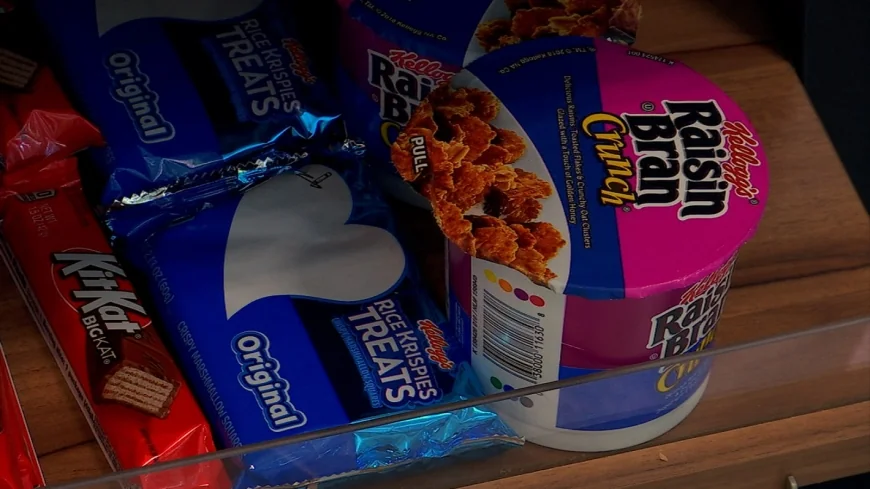High consumption of processed foods revealed in CDC report, local professor weighs in

CHESTERFIELD COUNTY, Va. (WRIC) -- A recent CDC report has found that over half of the calories Americans consume come from ultra-processed foods. The report, which analyzed data from August 2021 to August 2023, also noted that young people consume a significantly higher percentage of calories from these foods than adults.
Data revealed that Americans, on average, get about 55% of their total calories from foods high in salt, sweeteners and unhealthy fats.
"Processed foods don't necessarily do anything hugely different. And there's a little bit of a caveat to that. When we consume processed foods, we end up, for the most part, consuming more calories," said Julie Pollock, University of Richmond chemistry professor.
Adults get 53.0% of their calories from ultra-processed foods and for children 18 and younger the number is even higher with 61.9% consumption.
Pollock explained that the issue with processed foods isn't always what they contain, but what they lack.
"A lot of ultra processed foods are missing things like fiber, and fiber is actually another really important sugar, a type of sugar, a type of carbohydrate that our body uses," she said.
One of the biggest concerns is the high amount of added sugar. While carbohydrates are a necessary part of our diet, ultra-processed foods can cause us to consume more sugar than our bodies need, which is linked to health problems such as tooth decay and Type 2 diabetes.
“Because they are delicious and people like to eat them, we tend to consume more of them and that increased caloric intake can be linked to obesity as well," Pollock said.
Pollock recommended a balanced approach to eating rather than an all-or-nothing mindset. She suggested trying to incorporate more whole foods and choosing processed items that have nutrients.
“Fortified foods can be actually very helpful. So things that are whole grains, things like breads, cereals, popcorn, those are considered processed foods. But they actually do have a lot of the nutrients that you need," Pollock said.
For a full copy of the report, click here.

 VENN
VENN 





